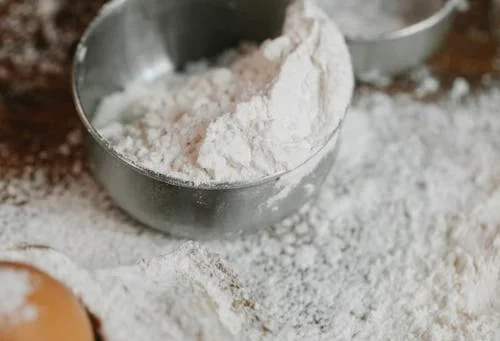Introduction
Protein is an essential macronutrient vital for muscle repair, growth, and overall health. With the increasing focus on fitness and nutrition, protein powders have become a popular supplement. They come in two primary forms: homemade and packaged. Understanding the advantages and disadvantages of each can help you make an informed choice that aligns with your dietary needs and lifestyle.
Homemade Protein Powder
Homemade protein powder is made using natural ingredients such as nuts, seeds, grains, and legumes. The process typically involves drying and grinding these ingredients into a fine powder, ensuring they retain their nutritional value.
Advantages of Homemade Protein Powder
- Control Over Ingredients:
- You have complete control over what goes into your protein powder, ensuring only high-quality, natural ingredients are used.
- No Additives or Preservatives:
- Homemade protein powders are free from artificial additives, sweeteners, and preservatives, making them a healthier option.
- Customizable to Dietary Needs:
- You can tailor the ingredients to meet specific dietary requirements, such as gluten-free, vegan, or allergy-friendly options.
- Cost-Effective in the Long Run:
- Although the initial cost of ingredients might be higher, making protein powder at home can be more economical over time.
- Freshness and Quality Assurance:
- You can ensure the freshness and quality of the ingredients, leading to a superior final product.
Disadvantages of Homemade Protein Powder
- Time-Consuming to Prepare:
- Making your own protein powder requires significant time and effort, from sourcing ingredients to processing them.
- Limited Shelf Life:
- Without preservatives, homemade protein powder has a shorter shelf life and needs to be consumed relatively quickly.
- Potential Inconsistency in Nutrient Content:
- Achieving a consistent nutrient profile can be challenging, leading to variability in protein and nutrient levels.
- Requires Knowledge of Proper Ingredient Combinations:
- Understanding how to combine ingredients to create a balanced protein powder requires research and nutritional knowledge.
- Possible Lack of Convenience:
- The process of making and storing homemade protein powder can be less convenient compared to the ready-to-use packaged options.
Packaged Protein Powder
Packaged protein powders are commercially produced and come in various types, including whey, casein, soy, and plant-based proteins. They often contain additional ingredients like flavorings, sweeteners, and preservatives.
Advantages of Packaged Protein Powder
- Convenience and Time-Saving:
- Packaged protein powders are ready to use, saving you the time and effort of preparation.
- Long Shelf Life:
- They are designed to have a long shelf life, making them easy to store and use over an extended period.
- Consistent Nutrient Content:
- Commercial protein powders provide a consistent and reliable source of nutrients, with clearly labeled content.
- Variety of Flavors and Formulations:
- Available in numerous flavors and formulations to suit different taste preferences and dietary needs.
- Easy to Find and Purchase:
- Widely available in stores and online, making them easily accessible.
Disadvantages of Packaged Protein Powder
- Potential Presence of Additives and Preservatives:
- Many commercial protein powders contain artificial additives, sweeteners, and preservatives, which may not be desirable for everyone.
- Higher Cost Compared to Homemade:
- Packaged protein powders can be more expensive than homemade alternatives, especially for high-quality products.
- Risk of Allergens and Contaminants:
- There is a risk of cross-contamination with allergens and the presence of harmful contaminants in some commercial products.
- Limited Control Over Ingredients:
- You have less control over the ingredients and their sources, which might be a concern for those with specific dietary preferences.
- Possible Overreliance on Supplements:
- Relying too heavily on protein powders can lead to neglecting whole food sources of protein and other nutrients.
Comparison: Homemade vs. Packaged Protein Powder
- Nutrient Content and Quality: Homemade allows for more natural ingredients, while packaged offers consistency.
- Cost Considerations: Homemade can be cost-effective long-term, but packaged is often more convenient despite being pricier.
- Convenience and Ease of Use: Packaged is more convenient and time-saving, whereas homemade requires preparation and effort.
- Customization and Control: Homemade provides greater customization, while packaged offers a variety of ready-made options.
Conclusion
Both homemade and packaged protein powders have their own set of advantages and disadvantages. The choice between the two depends on your lifestyle, dietary needs, and preferences. Homemade protein powder offers control and natural ingredients, while packaged protein powder provides convenience and consistency.
